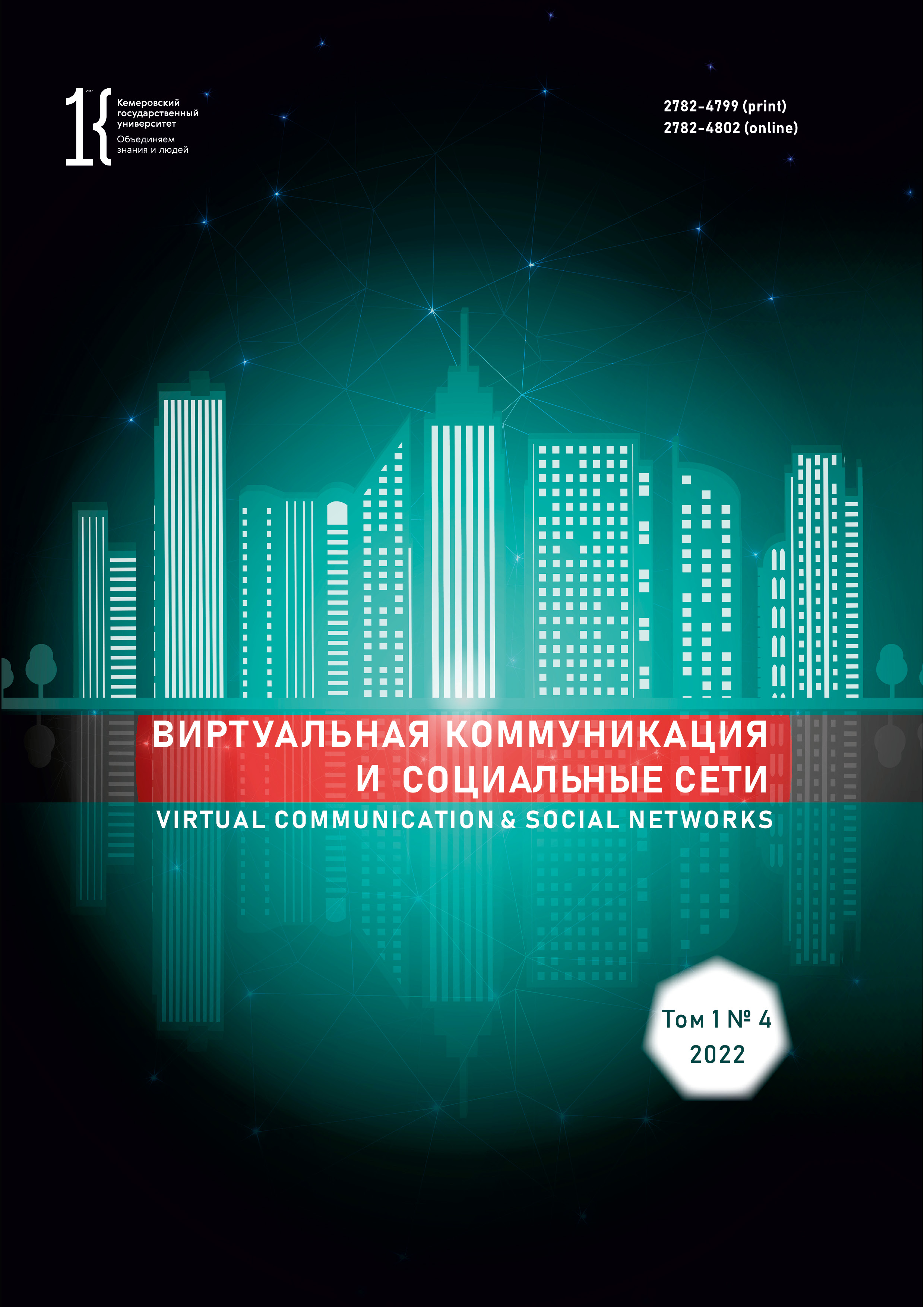Krasnodar, Russian Federation
Krasnodar, Russian Federation
The present research featured the conflict discourse of online communication in social networks on the topic of abortion ban. The empirical base included 3,000,000 Twitter messages in English. The sampling by keywords women and abortion covered the period from May 1 to July 31, 2022, which saw an outburst of online and offline civic activities regarding some national anti-abortion policies. The resulting web corpus of network linguistic data (datasets) was subjected to multidimensional analysis using such methods as Data Science, mathematical modeling, relational sociology, corpus analysis, discourse analysis, etc. All these procedures combined resulted in a multidimensional comprehensive analysis of the simulated English asynchronous multimodal discursive field in Twitter. The models made it possible to visualize online communications in social networks, as well as to describe the discourse of online communication between pro-choice and pro-life. The authors analyzed the pragmatic potential of network communities on the current political agenda. The method might help to identify the conflict potential that can evolve from online communication into offline socio-political actions.
social media, online communication, abortion law, English discourse, Twitter, pragmatic linguistics
1. Gorina E. V. Discourse of the Internet: definition and research methodology. Philology. Theory & Practice, 2014, (11-2): 64-67. (In Russ.) EDN: https://elibrary.ru/STGOGB
2. Karasik V. I. Genres of network discourse. Speech Genres, 2019, (1): 49-55. (In Russ.) https://doi.org/10.18500/2311-0740-2019-1-21-49-55
3. Katermina V. V., Gnedash A. A., Nikolaeva M. V. Comprehensive analysis of linguistic communication patterns of top Russian journalists in the official accounts of social platforms VKontakte, Facebook, Instagram, Twitter. I. Yakovlev Chuvash State Pedagogical University Bulletin, 2020, (4): 49-62. (In Russ.) https://doi.org/10.37972/chgpu.2020.109.4.006
4. Makhortova T. Yu. Linguapragmatic potential of the PR genre in the space of banking discourse based on the material of German-language bank prospectuses. Cand. Philol. Sci. Diss. Volgograd, 2007, 190. (In Russ.)
5. Pavlov M. A. The network discourse concept in modern linguistics. Nauka i obrazovanie: novoe vremya. Nauchno-metodicheskii zhurnal, 2017, (1): 9-13. (In Russ.) EDN: https://elibrary.ru/YHNPZZ
6. Ryabchenko N. A., Gnedash A. A., Malysheva O. P., Katermina V. V. Managing political content in the online space of modern states: how Twitter prevented D. Trump from winning the 2020 presidential election? Political science, 2021, (4): 135-160. (In Russ.) https://doi.org/10.31249/poln/2021.04.06
7. Ryabchenko N. A., Katermina V. V., Gnedash A. A., Malysheva O. P. Political content of social movements in the online space of modern states: analysis methodology and research practices. South Russian Journal of Social Sciences, 2018, 19(3): 139-162. (In Russ.) https://doi.org/10.31429/26190567-19-3-139-162
8. Ryabchenko N. A., Malysheva O. P., Gnedash A. A. Political content management in social networks during the election campaign in the era of post-truth. Polis: Political Studies, 2019, (2): 92-106. (In Russ.) https://doi.org/10.17976/jpps/2019.02.07
9. Ryabchenko N. A., Malysheva O. P., Katermina V. V., Gnedash A. A. Communication model "Speaker-Listener" in the context of digitalization of the linguistic turn: experience of network and linguodiscursive analysis of YouTube content. Political Linguistics, 2021, (1): 81-94. (In Russ.) https://doi.org/10.26170/1999-2629_2021_01_07
10. Sakevich V. I. From abortion to contraception. Demoskop Weekly, 2016, (687-688): 1-25. (In Russ.) EDN: https://elibrary.ru/WWMHIX
11. Shevtsova V. A. Linguo-pragmatic analysis of political discourse. Foreign languages: innovations, research prospects, and teaching: Proc. III Intern. Sci.-Prac. Conf., Minsk, 26-27 Mar 2020, 2020, 60-63. (In Russ.) EDN: https://elibrary.ru/GDELKC















